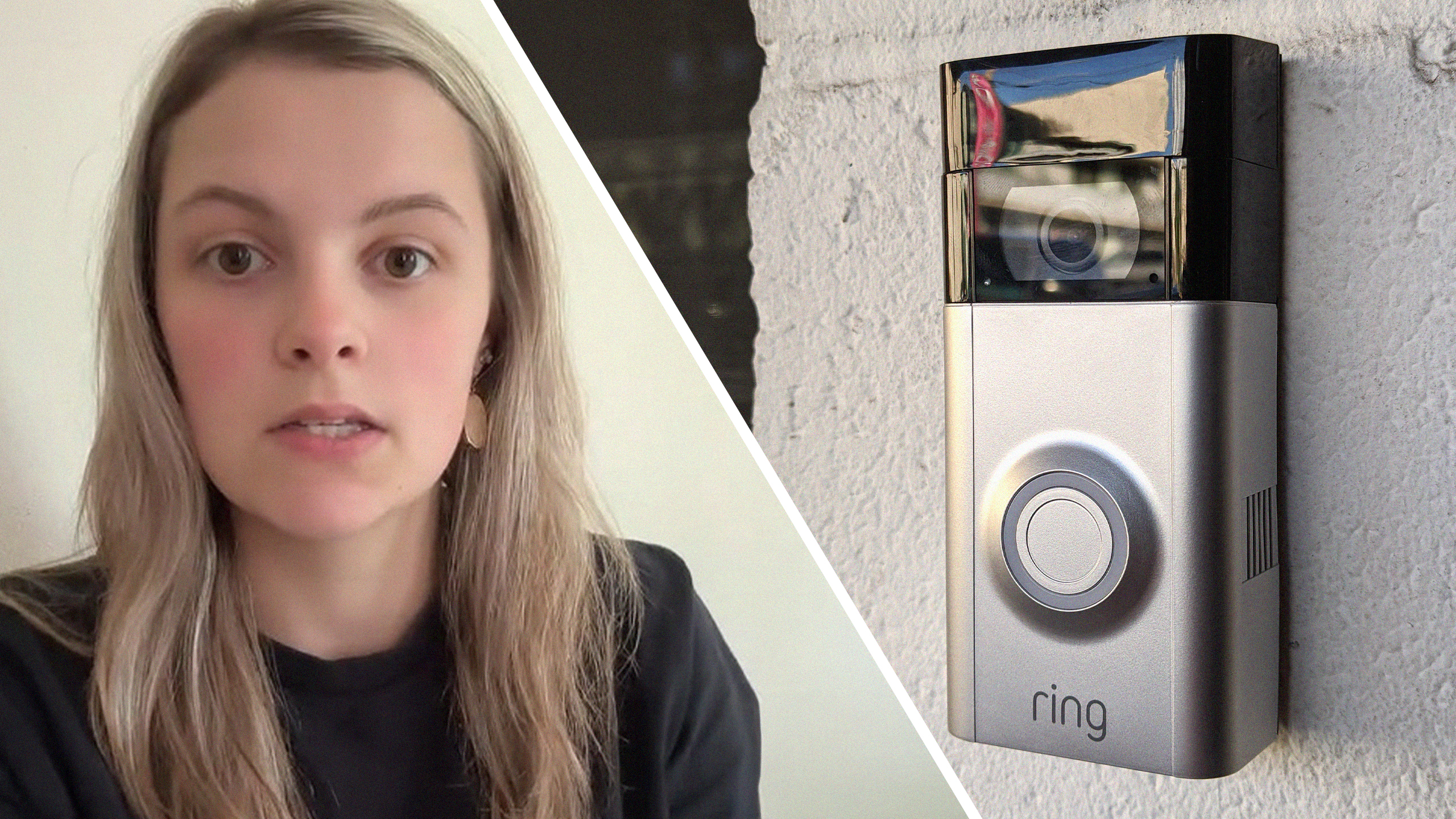Traumatizing: Woman Warns Against Ring Cameras, Says Man Started Talking To Her Toddler In The Middle Of The Night
The rise of home security systems has made many people feel safer, but some say they're having the opposite effect. According to industry estimates, the home surveillance market is expected to grow significantly in the coming years, with experts predicting a value of over $40 billion by 2034.
However, not everyone is benefiting from these systems. A recent story on TikTok has raised concerns about the potential for hackers to gain access to home security cameras and speak to children through them. The victim, Kahlen (@kahlenb_), shares her harrowing experience with BroBible.
A Disturbing Night
Kahlen's family had relied on Ring for everything from doorbell notifications to baby monitors. She had two indoor cameras set up in her son's room and paid for cloud storage to keep the footage. One day, while reviewing the live dash, she noticed her son standing next to his bed, talking - but she couldn't hear what he was saying.
"I'm just thinking, this is so strange," Kahlen recalls. "He's got to be having a weird dream or something." But when she reviewed the footage later, she was alarmed to discover someone had been speaking to her son through the camera.
A Pattern of Abuse
Kahlen says that the man had been regularly talking to her son at night. He would wait until one of the parents left the room before speaking through the device. The voice would start by playing a sound to muffle itself, then speak, and then shut the sound off.
Looking back at past clips, Kahlen suspects this may be what caused her son's frequent night wakings. "The uncomfortable feeling that you get as a parent knowing that there's an adult talking to your child in your home," she says, adding, "and has been, like, watching him for who knows how long."
A Lack of Action
Kahlen contacted both Ring and the police about the matter. However, when she showed the officer at least 10 videos in which someone could be heard speaking to her child by name, he seemed skeptical.
"I'm not saying that doesn't happen, but I've never heard of it," he remembered telling her. Kahlen also says that police told her no laws had been broken, so they wouldn't pursue the matter further.
A Warning to Parents
Kahlen now warns other parents to stop using Wi-Fi-based baby monitors altogether. She urges them to "put this out there because I had heard of people having their cameras hacked, but I was like, 'There's no way that's gonna happen to me,' and it quite literally happened to me."
"There are so many gross predators out there hacking these every single day, and we have no idea," she says. According to a recent study by Bitsight, more than 40,000 internet-connected cameras around the world are currently exposed to the public web - meaning anyone can view them without hacking.
Securing Your Home Security Cameras
The Federal Trade Commission (FTC) recommends several measures to secure your home security cameras. First, research a device's built-in security features before buying it. Look for cameras that use encryption to scramble account details, live streams, and stored footage.
Check whether encryption is available and how to turn it on by visiting the manufacturer's website or reading the product's packaging. Securing your home Wi-Fi is also crucial, as most cameras rely on your router to stay connected.
The FTC urges people to double-check their network's password strength, update the router software regularly, and make sure the firewall is turned on. Setting up unique, strong passwords and enabling two-factor authentication whenever it's available can also help prevent hacking.
A Call to Action
Many viewers have flooded TikTok with advice, concern, and shared experiences about this issue. "Listen America - these types of issues are for the FBI," one user advised. "You should have called them. The police are for domestic and traffic only."
"The WiFi is the problem," warned another. "You need closed systems." Kahlen also chimed in with follow-up details when one user suggested that Ring could track the IP address used to access the camera.
